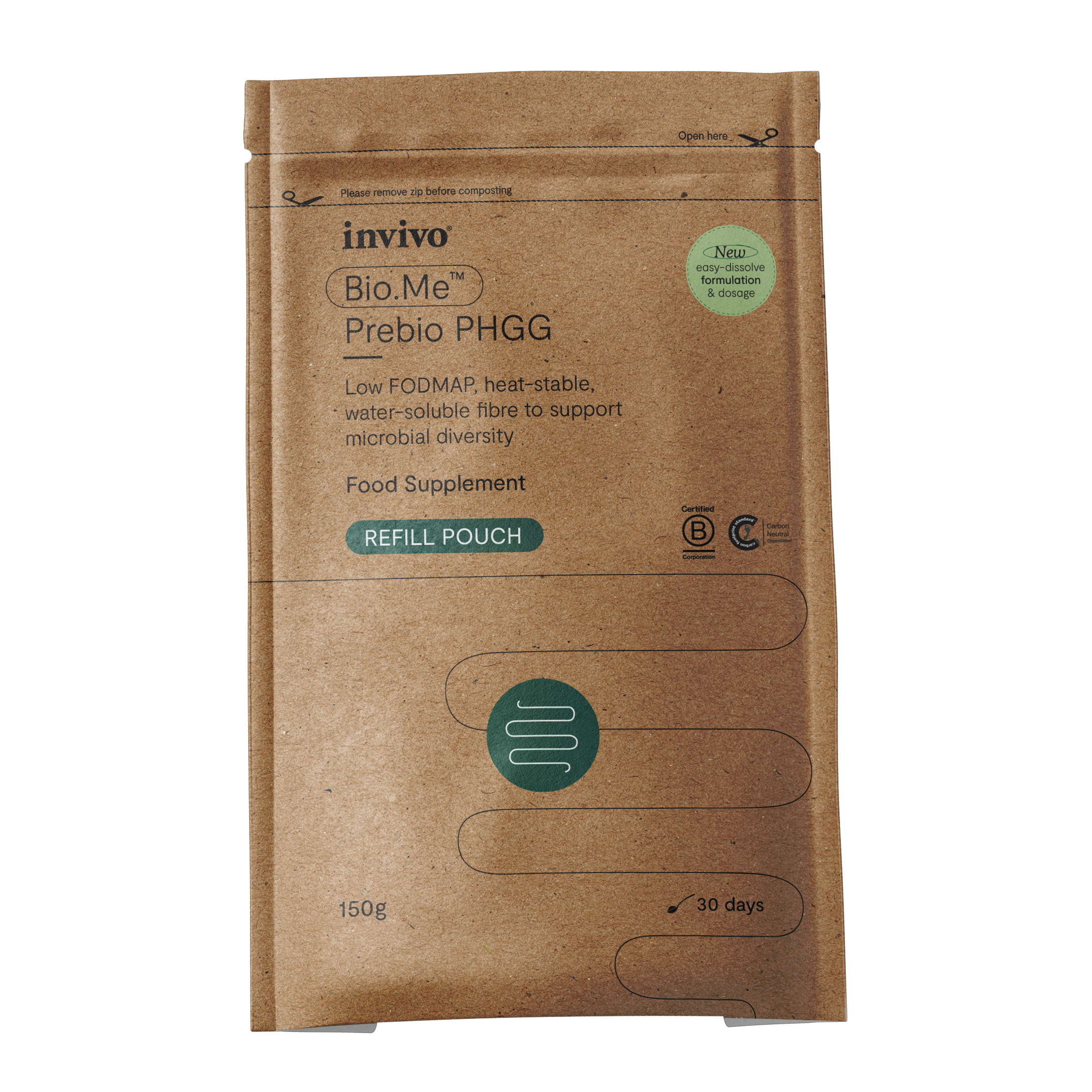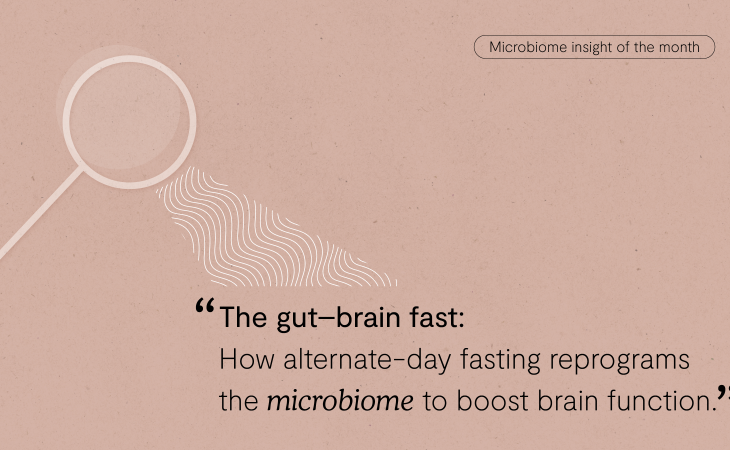The Gut–Brain Fast: How Alternate-Day Fasting Reprograms the Microbiome to Support Brain Function
Obesity is increasingly recognised as a contributor to impaired brain health.¹ It has been shown to compromise the integrity of the blood-brain-barrier (BBB), allowing peripheral inflammatory signals to influence the brain. When the BBB is disrupted, microglia – the brain’s resident ‘first line of defence’ immune cells – are activated to protect neural tissue. However, chronic low-grade inflammation associated with obesity can drive persistent microglial activation, leading to impaired neuroprotective function and potentially accelerating processes of brain ageing.
A dysbiotic gut microbiome has also been implicated in the cognitive decline observed in obesity, however the mechanisms behind this connection have been unclear. A randomised controlled trial published earlier this year by Mela et al revealed that fasting-induced shifts in the gut microbiome can support cognitive improvements in obesity, particularly through modulation of microglial activity.²
96 adults with obesity were randomised to one of three dietary interventions for 3 months: Mediterranean diet (Med), alternate day fasting (ADF), or ketogenic diet (Keto). Both the Keto and ADF groups achieved significant weight loss, however the ADF group experienced the most notable improvements in cognitive performance, alongside reduced inflammation.
Faecal microbiota from each intervention group were transplanted into germ-free mice. Mice colonised with ADF-derived gut microbiota displayed enhanced cognitive performance, demonstrating that the cognitive benefits were gut microbiota dependent.
Further analysis of the mice microglia showed greater phagocytic activity and reduced inflammation, alongside changes in morphology, compared with non-ADF microbiota recipients. Importantly, these effects remained significant after adjusting for weight reduction, further suggesting that the cognitive gains were microbiota-dependent rather than weight-related.
Clinical implications:
- Alternate day fasting is a promising dietary strategy for supporting cognitive as well as metabolic function in obesity, although more research is needed.
- Cognitive improvements were driven by modulation of the microglia via the gut microbiome in an animal model.
- Modulation of the gut microbiome holds immense promise for supporting the gut-brain axis and brain health.




